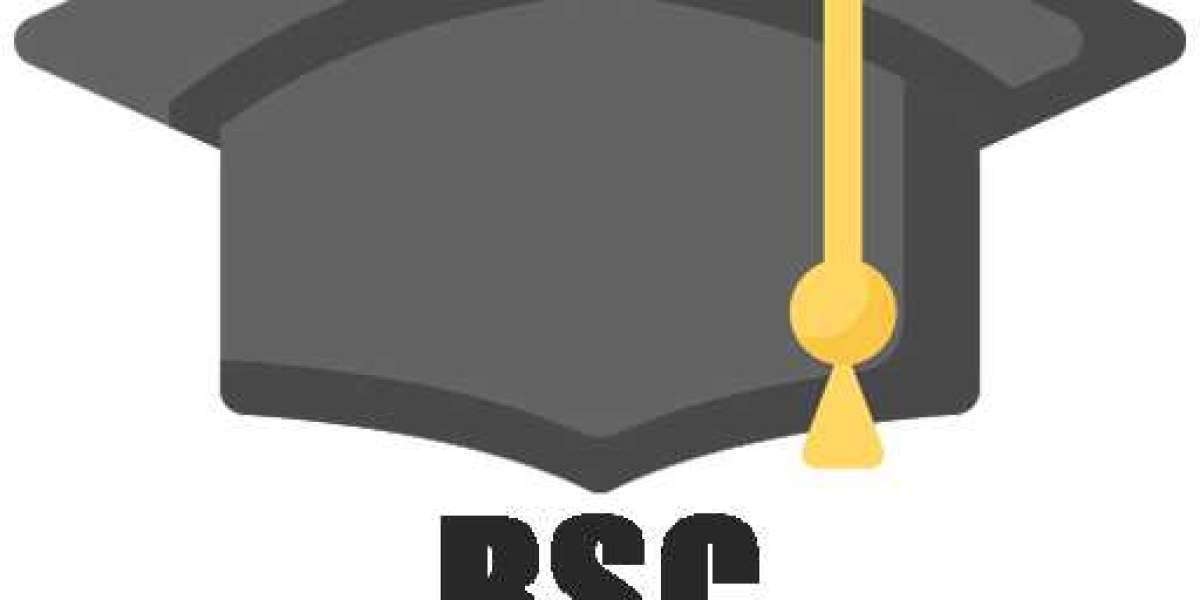Deciding to pursue a Bachelor of Science (BSc) is an exciting step. It’s your ticket to exploring fields like biology, chemistry, physics, or even niche areas like environmental science or biotechnology. But here's the catch: it’s not just about enrolling. You need to be prepared—mentally, academically, and strategically.
The full form of BSc, Bachelor of Science, might sound straightforward, but the journey? That’s a whole different story. This guide will walk you through everything you should consider before diving into this degree.
1. Why Are You Choosing a BSc?
This might sound basic, but ask yourself—why a BSc? Is it because you’re genuinely interested in science? Or is it because everyone else is doing it? Your reasons matter because this degree demands passion and commitment.
For instance, let’s say you’ve always loved experiments in your high school lab. Great! A BSc in chemistry or biochemistry could be a natural fit. But if you’re doing it just to fill in the blanks until you figure out your career, think twice. The full form of BSc may be simple, but the effort it requires? Not so much.
2. Choosing the Right Specialization
BSc isn’t one-size-fits-all. There are dozens of specializations—biology, physics, environmental science, computer science, and more. Each one leads to different career paths.
Think of it this way: Picking a specialization is like choosing a pair of shoes. If it doesn’t fit, you’ll regret it.
Take computer science, for example. It’s lucrative but demands a knack for coding. If the thought of debugging code makes you cringe, you might be better off with, say, a BSc in environmental science. Choosing your focus wisely will determine how fulfilling your academic journey is.
3. Research Colleges and Universities
Not all institutions are created equal. Some have better labs, experienced faculty, or internship tie-ups with big companies. These factors can significantly impact your learning experience and future opportunities.
Here’s a tip: Create a shortlist of universities offering BSc programs. Look at their rankings, alumni reviews, and course structures. Some universities even offer interdisciplinary programs, where you can combine two fields of study.
Remember, where you study can matter as much as what you study. Bold choices lead to strong foundations.
4. Know the Course Structure
Before starting your BSc, dive into the curriculum. What kind of subjects will you study? How much emphasis is there on practicals versus theory?
For example, a BSc in physics will have topics like quantum mechanics, electromagnetism, and thermodynamics. Sounds fancy, right? But if you’re not ready to grapple with equations every day, it might not be the best choice for you.
Some programs even offer internships or research projects in the final year. These opportunities can give you a huge edge in the job market. Make sure the program aligns with your career goals.
5. Assess Your Skills and Interests
This is a tough one. Are you ready to handle the rigor of a science degree?
Science isn’t just about memorizing formulas or passing exams. It’s about understanding concepts and applying them in real-world situations. If you struggled with science subjects in high school, think about why. Was it because you didn’t like them, or was it a lack of focus?
The good news? Skills can be improved. The bad news? Interest is harder to fake. If you love what you’re studying, the challenges will feel worth it.
6. The Financial Side of Things
Let’s talk money. A BSc might not be as expensive as some professional courses, but it’s still an investment.
Do you know the tuition fees? What about the cost of books, lab equipment, and other materials? Some students also incur additional expenses for research projects or internships.
If finances are tight, consider applying for scholarships or financial aid. Many institutions offer merit-based or need-based scholarships specifically for science students. Planning your finances ahead of time can save you from unnecessary stress.
7. Future Prospects
What comes after your BSc?
Some students opt for higher studies, like an MSc or PhD, to deepen their expertise. Others prefer to enter the job market. Fields like IT, pharmaceuticals, and environmental consultancy often hire BSc graduates.
But here’s the thing: the job market is competitive. A plain BSc might not always be enough. Supplement your degree with internships, certifications, or skill-building courses.
Think of your degree as a stepping stone—not the final destination.
8. Time Management is Key
Science degrees are demanding. You’ll juggle lectures, labs, assignments, and exams. If you’re not great at managing your time, things can spiral out of control fast.
One trick? Break your day into chunks. Dedicate specific hours to studying, relaxation, and extracurricular activities.
Remember, even the best students need balance. Burning out is real, and it’s not pretty.
9. Networking is Your Secret Weapon
Ever heard the saying, “It’s not what you know, but who you know”? This applies to your BSc journey too.
Build connections with professors, peers, and industry professionals. Attend seminars, workshops, or even online webinars. You never know when a casual conversation might lead to a golden opportunity.
Networking isn’t just about career prospects. It also helps you stay motivated and informed about the latest developments in your field.
10. Be Ready to Adapt
Lastly, keep an open mind. Science is constantly evolving. What’s relevant today might be outdated tomorrow.
Stay curious. Read journals, explore online resources, and never stop learning. Your willingness to adapt will set you apart from the crowd.
Conclusion
Starting a BSc is a big decision. It’s not just about understanding the full form of BSc or picking a subject. It’s about aligning your passion, skills, and future goals.
From choosing the right specialization to managing your time and finances, every step matters. The good news? If you’re genuinely interested in science, it can be an incredibly rewarding experience. So, take your time, do your research, and make an informed choice.
FAQs
1. What is the full form of BSc?
The full form of BSc is Bachelor of Science. It’s an undergraduate degree focused on various fields of science and technology.
2. Can I pursue a BSc if I didn’t study science in high school?
In most cases, you need a science background in high school. However, some interdisciplinary programs might accept students from other streams.
3. What career options do I have after completing a BSc?
You can explore careers in research, teaching, IT, healthcare, pharmaceuticals, or environmental consultancy. Higher studies like MSc or specialized certifications can broaden your options.
4. How do I choose the right BSc specialization?
Assess your interests, skills, and career goals. Research different specializations and their scope before making a decision.
5. Is a BSc degree worth it in today’s job market?
Absolutely. A BSc provides a strong foundation in science, opening doors to various industries. However, complementing it with practical experience or additional certifications enhances its value.



